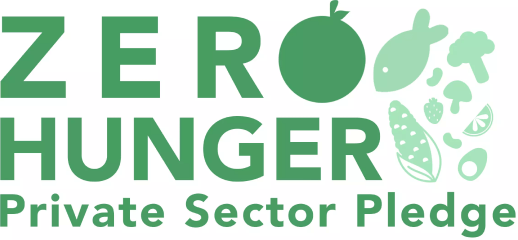
11 new pledges above USD 1 million to achieve SDG 2 (Zero Hunger) in Bangladesh
Thanks to the continued efforts of the Global Alliance for Improved Nutrition (GAIN), a Zero Hunger Pledge technical partner, we are proud to announce 11 new pledges from Bangladesh.
This success has been achieved through the support of the Workforce Nutrition Alliance (WNA) in Bangladesh — an initiative convened by GAIN that focuses on improving the health and well-being of workers across both formal and informal sectors. This collaborative effort highlights the essential role of workforce nutrition in achieving the Sustainable Development Goals (SDGs), particularly SDG 2 (Zero hunger), SDG 3 (Good health and well-being) and SDG 8 (Decent work and economic growth).
In Bangladesh, WNA was established under the leadership of the Ministry of Labour and Employment (MoLE), in collaboration with the Department of Labour (DoL) and the Department of Inspection for Factories and Establishments (DIFE). Through its partnerships, the WNA provides capacity building and advocacy for companies to invest in their employees’ nutrition, contributing to SDG progress and fostering economic growth.
New commitments: a significant step towards zero hunger
The Zero Hunger Private Sector Pledge reached a new milestone with commitments made by 11 companies from the Mymensingh Division to invest more than USD 1 million in projects focused on nutrition and health. Following a regional awareness workshop, these companies formally joined the Zero Hunger Private Sector Pledge, recognising the critical link between workforce nutrition and business sustainability.
Introducing the new pledges
Jabed Agro Food Processing Limited established in 2014, produces a range of bakery and confectionery products which are exported to numerous countries across the Middle East and South Asia. The company committed USD 77,000 towards nutritious food, health check-ups, and maternity healthcare services for its employees.
Jamalpur Central Hospital Ltd, a private hospital and diagnostic centre in Jamalpur, offers 24/7 healthcare services as well as emergency and ambulance support. It committed USD 182,000 in subsidised food support, healthy snacks, health check-ups, maternity care, and social activities for its employees.
RCI Limited has over 25 years of experience as a Bangladeshi chemical contract manufacturer specialising in high-quality chemical and cosmetic products for global brands. The company pledged USD 73,000 to support nutritious food, health check-ups, menstrual hygiene, maternity healthcare, and social activities for its employees.
Hazrat Shahjamal (R.) General Hospital Ltd a private hospital founded in 2009, provides high-quality, affordable healthcare. It committed USD 427,000 for nutritious food, health services, maternity healthcare, and social programmes for its employees.
M.K Plastic Industries, based in Jamalpur, recycles 35 to 40 tons of plastic waste annually, reducing pollution and providing employment to around 200 people, mostly from economically disadvantaged backgrounds. It committed USD 8,000 to workforce nutrition support.
Its Director, Mr Md. Anamul Haque Khan Milon, stated: “Most workers in this sector are poor and vulnerable to disease. I try to provide occasional food for them and their families, as well as cover primary healthcare costs, so they remain healthy and productive.”
Shatadol Hostoshilpo Karukala, a handicrafts enterprise in Jamalpur, is known for using indigenous materials crafted by local artisans — predominantly village women — and preserving centuries-old traditional skills. The company operates retail and production centres and focuses on sustainable, eco-friendly products that improve artisans’ livelihoods. They pledged USD 30,000 for food, health check-ups, and social support for their workers.
The company owner, Md. Sahinur Alam, stated: “We work together, and mostly village women engage in this work, which boosts their confidence and helps them support their families. Women here face many challenges, so I strive to provide healthcare and social dignity to help them live decent lives.”
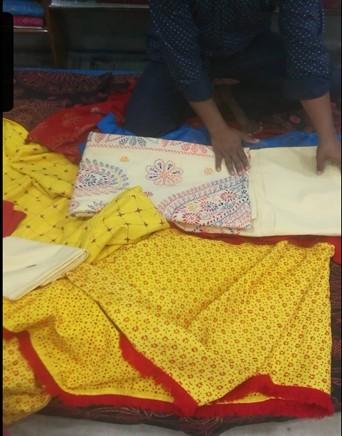
Organic Jeans Ltd., part of Shin Shin Apparels Ltd, is a woven garment manufacturer based in Chattogram. It pledged USD 86,000 for infrastructure, regulations, technical assistance and services to support SMEs in the value chain. Specifically, the company committed to improve employee’s nutrition by establishing Nutrition Improvement Committees (NIC). Moreover, the company management pledged to organise a specialised training programme to prepare select employees to become internal trainers, ensuring that nutritional knowledge reaches every staff member.
Chittagong Asian Apparels Ltd. is a factory part of the Asian Group, a leading Bangladeshi conglomerate operating in garments, textiles, packaging, electronics and more.
They have committed USD 68,000 to support worker well-being and provide nutritious food, recognising the critical importance of line-level performance in the ready-made garment sector. In production lines, each worker performs a specific task, and absenteeism can disrupt the entire workflow. This investment aims at ensuring workers stay healthy, motivated and productive, helping maintain smooth operations and a sustainable supply chain.
Md. Forkhan, HR and Compliance Manager at Chittagong Asian Apparels Ltd, noted: “Workers are at the heart of our factory operations. When our workers are in good health, our factory runs smoothly. We are committed to investing in the Zero Hunger Pledge for the well-being of our workers, which will also contribute to our business growth.”
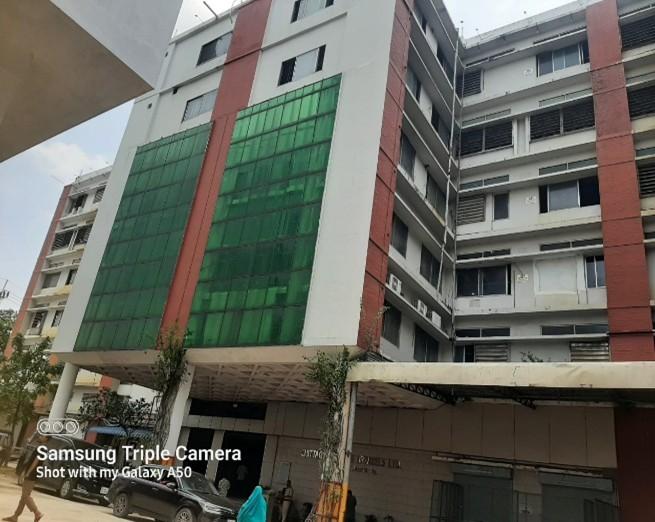
UNI Garments Ltd., part of the RDM Group, specialises in knit and woven garments and has over 1,200 employees. The company pledged USD 68,000 to invest in nutrition education, health check-ups, and daycare support for its employees.
Md. Sohel Mahmud, HR, Admin & Compliance Manager stated: “By investing in capacity building and raising awareness among workers on nutrition education, health check-ups, and daycare support, we aim to motivate our workforce and ensure their well-being. A healthy workforce is essential for sustainable business growth.”
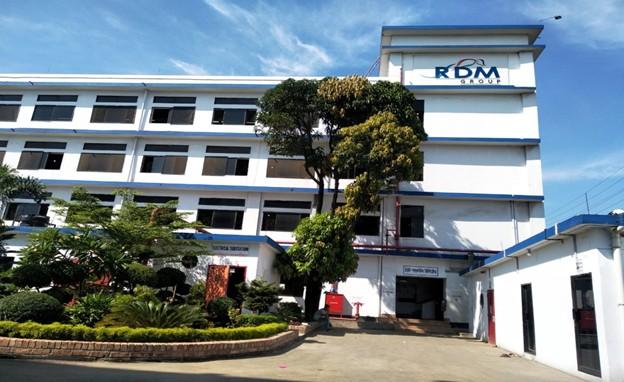
Sonnet Textile Industries Ltd. is a textile company known for its sustainable operations, innovation and strict compliance with national and international standards. The company has committed USD 58,000 in nutrition education, access to healthy snacks, and regular health check-ups for its employees.
Iqramul Hoque Tofial, HR, Admin & Compliance Assistant Manager stated: “We learned about the Zero Hunger Private Sector Pledge from GAIN Bangladesh. We believe that our collective efforts can help create an environment where hunger is eliminated. As part of this initiative, we pledge to invest in our workforce through nutrition education, access to healthy snacks, and regular health check-up interventions.”

Hi Fashions Ltd., is a quality-driven, ethical apparel manufacturer committed to innovation, sustainability and employee well-being. For this reason, they joined the Zero Hunger Pledge, committing USD 68,000 to provide healthy snacks, nutrition education and awareness campaigns to its workforce.
Md. Mamunur Rashid, responsible for HR and Compliance at Hi Fashions, stated: “We are planning to invest in workers' well-being as part of our commitment to the Zero Hunger Private Sector Pledge. We thank GAIN Bangladesh for facilitating this process with us.”
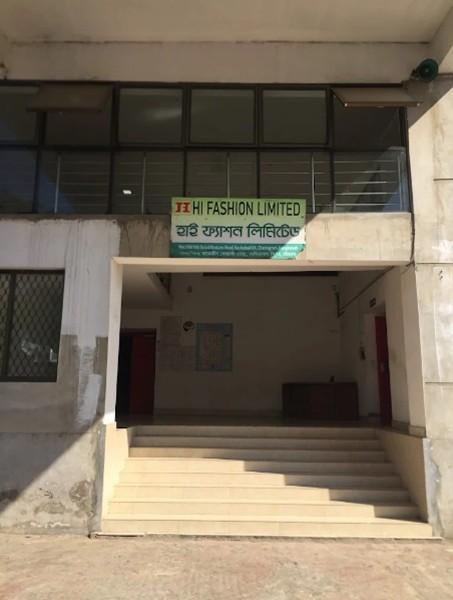
A commitment to SDG2
Companies in Bangladesh are pledging to workforce nutrition not only as a social responsibility but also as a smart business strategy. By ensuring healthier employees, they gain higher productivity, reduced absenteeism, and stronger retention. Such investments also enhance their reputation with international buyers who value worker well-being. Evidence shows that USD 1 invested in workforce nutrition generates USD 3–6 in returns through higher productivity, reduced healthcare costs, and stronger business continuity. For Bangladeshi companies, this translates into smoother operations, motivated workers, and a more competitive edge.
These new pledges demonstrate a strong commitment by companies to help their employees improve their well-being through nutritious food, health check-ups, maternity healthcare, and social support. The Workforce Nutrition Alliance team maintains close engagement with these companies and will provide tailored technical support to help them effectively implement their pledges.
This collective effort marks a significant step towards a healthier, more resilient workforce in Bangladesh and highlights the important role of companies in achieving SDG2.
